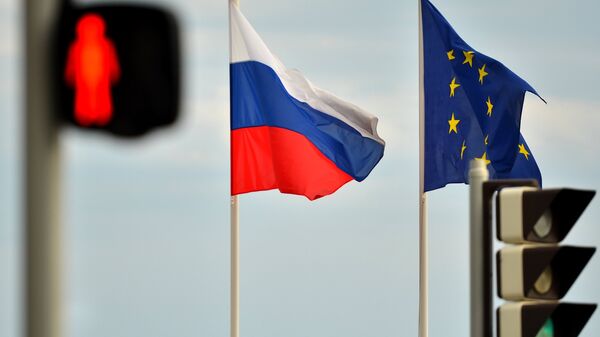"The US trade is going up and the EU trade with Russia is going down. It is hypocritical and is a sore spot. I personally do not like sanctions at all as they are counterproductive to everybody. It's a lose-lose situation," Franczek said at a meeting with Russian Foreign Minister Sergey Lavrov and the EU business community in Moscow.
Germany, one of the major trade partners of Russia, corresponds to 27 percent of sanctions-caused economic losses as opposed to 0.4 percent the United States lost.
"Some American companies in the oil sphere, in the financial sphere and in other fields have been also hurt by sanctions. However, in the eyes of the Europeans, the United States were not hurt as much because the EU trade with Russia is 10 times more than the US-Russia trade," Franczek noted.
Due to the EU sanctions and the retaliatory measures imposed by Russia following the Ukrainian crisis in 2014, the trade between Russia and some EU states seriously dropped, prompting some of the bloc member states, notably Hungary, Italy and Slovenia to call for the gradual abolition of anti-Russia sanctions or least to show reluctance in imposing new punitive measures.
As some EU states call to lift the anti-Russia sanctions, some politicians in Washington call for additional restrictive measures, this time, over Syria crisis. In July, the US House of Representatives Committee on Foreign Affairs has passed a bill drafted by House Foreign Affairs Committee's Ranking Democrat Eliot Engel. It aims to sanction Syrian President Bashar Assad’s government and its allies for alleged war crimes.
The bill is seen by the US lawmakers as a leverage against these countries and is likely to be passed into a law, despite the White House’s attempts to amend it, Franczek stated.
"The sanctions are a very complex tool that [the United States] likes to use. They used it on Iran and they think they have used it effectively. Now they are talking about more sanctions against Russia. The so called Engel Bill is very draconian. These are very nasty staff. In the House it passed unanimously, it has not gone through the Senate voting yet, so I would say it is a strong likelihood that it is going to be passed even though I was told by the US ambassador that the Administration opposes it," he pointed out.
The West blames Moscow and Damascus over alleged bombings of civilian population and armed opposition groups in Syria. Russia and the Syrian government dismiss the accusations, insisting that they only strike terrorist positions, while blaming the United States of their inability to differentiate between the so-called moderate opposition and terrorists.





